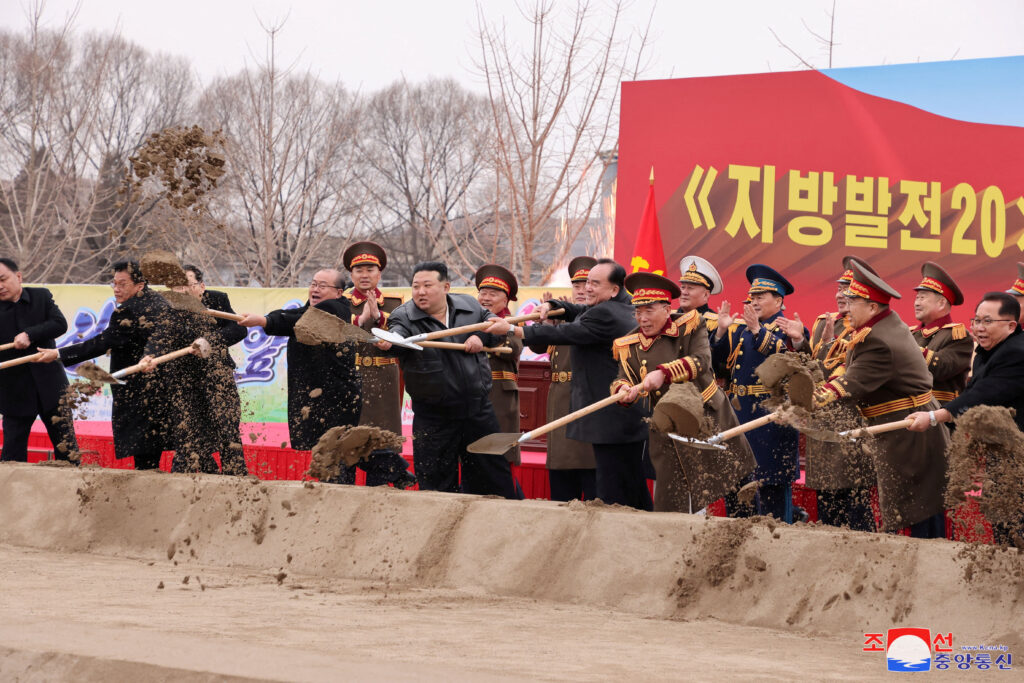In 2023, North Korea intensified its political and economic development. Pyongyang is going back to its historical roots, dedicating economic resources to the heavy industries where it has a comparative advantage. Although Supreme Leader Kim Jong-un pays lip-service to the idea of raising living standards, the overwhelming narrative is one of continuous retrograde. This is to the detriment of ordinary people.
North Korea’s return to its historical roots was made clear in the published notes from the Ninth Plenary Meeting of the Eighth Workers’ Party of Korea Central Committee, held in the capital in late 2023. In a development that preceded the COVID-19 pandemic but was also accelerated by it, North Korea has increasingly sought to expand control and oversight over its economy. This is a reversal of the strategy it has held since the early 2000s, where it had let markets and market mechanisms increasingly dominate the national economy.
Daily NK reported in late 2023 that the government had begun a reregistration campaign for businesses and government agencies. The police were charged with examining the books of businesses and government agencies and checking whether they adhere to government policies. This rhymes well with the ambition of ‘accelerating the future advance in all aspects of socialist construction and the strengthening of national power’, as stated at the Ninth Plenary Meeting.
The concrete effects of this campaign on the state’s control over the economy are not yet known. But it is safe to say that should the state’s program of enhanced state control move forward and stifle the private economic activity that has made North Korean society more resilient, ordinary people will suffer the most.
It is telling that, for the economy, the most significant achievement in 2023 was a relatively good harvest. This is not an unimportant achievement given North Korea’s perennial food issues, but it is far from substantial economic progress. The report from the Ninth Plenary Meeting stated that ‘the over-fulfillment of the goal of grain production… [was] the most precious and valuable success achieved in the economic work for 2023’.
Although irrigation efforts may well have made a difference, this success should primarily be attributed to improved weather conditions. As the US Department of Agriculture stated in 2022, improved weather conditions ‘have continued to raise yield expectations from average to above-average especially for the major summer grown food security crops, corn and rice’.
While better agricultural output is good news, the fact that this is touted as the economy’s main success indicates something important about the overall state of the economy. In 2023 and continuing through 2024, North Korea has returned to a more Stalinist, conservative and traditional way of viewing economic progress.
There is a clear Soviet ring to how North Korea is trumpeting the production of goods such as steel, iron and coal as measures of success. The mere production of these goods has little value in and of itself unless the goods contribute to broader economic development. But in the Stalinist economic view to which the North Korean regime appears to have returned to, production alone is an achievement that displays national strength — regardless of what is later done with the goods.
North Korean leadership is likely to be eyeing much larger gains ahead. 2023 saw a continuation of the warming of relations with Russia. North Korea has likely already exported millions of shells and missiles to Russia to assist in its war with Ukraine. North Korean Foreign Minister Choe Son-hui visited Russia between 15–17 January 2023 and returned with a message that Russian President Vladimir Putin might soon visit Pyongyang. It is not a coincidence that Kim Jong-un visited several weapons manufacturing plants in 2023.
North Korea appears to be moving toward its old position of the Soviet days — trading with Russia and China but few others while dedicating resources primarily to heavy industries. A focus on these industries could one day help the country grow as they did in South Korea, but for now, they remain too inefficient and globally uncompetitive.
North Korea’s continued economic turn is a dire prospect for the ordinary North Korean, but for North Korea as a state, it is a known reality and a strategy that is viable so long as global tensions continue to spiral.
Benjamin Katzeff Silberstein is Research Fellow at the Swedish Institute for Foreign Affairs and lecturer at the Hebrew University of Jerusalem.
This article is part of an EAF special feature series on 2023 in review and the year ahead.


In 2023, North Korea displayed economic regression by intensifying state control over the economy — relegating improved living standards to a secondary consideration. North Korea continued to improve its relations with Russia, exporting military equipment to aid its ally in its invasion of Ukraine. Domestically, North Korea increased it reliance on heavy industries despite their inefficiencies and inability to compete globally. This will cause a deterioration in living standards for ordinary citizens but could provide a sustainable strategy for the North Korean leadership amid escalating global tensions.